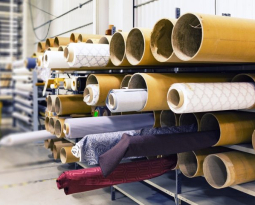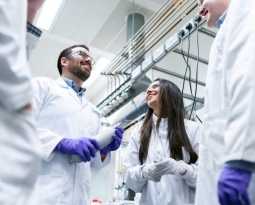Connecticut Patent of the Month – November 2021
Turbine engines use both topping and bottoming cycles. The former rejects around 30% of the heat available in fuel in the exhaust. The latter is a second heat engine able to utilize the rejected heat from the topping cycle, adding extra mechanical energy to the shaft and improving efficiency. Advances in the fuel injection technology improve efficiency using higher injection pressures. These technologies are not viable for smaller engines which can’t afford the cost or the bulk. Alternative solutions use 2-stroke engines or water injection engines. Each of these have their own advantages and disadvantages. LiquidPiston, Inc. has designed a system that combines these technologies in a synergistic manner to achieve the optimal power plant.
Part of this design includes a seal used in their epitrochoidal rotary engine. By improving the seal assemblies used in the compact rotary engines, the design can optimize the water injection component to internally cool the engine. This leads to reduced heat loss and directs it towards the bottoming cycle instead.
The seal assembly can seal a gap between a rotor and the side housing of the machine. The seal is forced against the rotor by fluid pressure, pressurizing the seal to block the gap. This fluid is made of the air-fuel mixture fas that fills each working chamber within the engine. This provides an effective seal that closes the gaps between the moving rotor member and the engine housing.
LiquidPiston has developed rotary engines which have been noted as the first disruption to engine tech in over a century. They designed a patented thermodynamic cycle alongside set efficiency and low-noise benefits to improve all aspects of an engine – including efficiency, weight, size, vibration, and noise.
Are you developing new technology for an existing application? Did you know your development work could be eligible for the R&D Tax Credit and you can receive up to 14% back on your expenses? Even if your development isn’t successful your work may still qualify for R&D credits (i.e. you don’t need to have a patent to qualify). To find out more, please contact a Swanson Reed R&D Specialist today or check out our free online eligibility test.
Who We Are:
Swanson Reed is one of the U.S.’ largest Specialist R&D tax advisory firms. We manage all facets of the R&D tax credit program, from claim preparation and audit compliance to claim disputes.
Swanson Reed regularly hosts free webinars and provides free IRS CE and CPE credits for CPAs. For more information please visit us at www.swansonreed.com/webinars or contact your usual Swanson Reed representative.

















